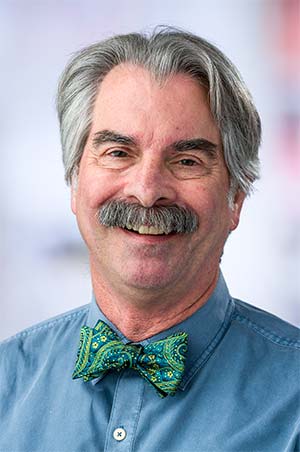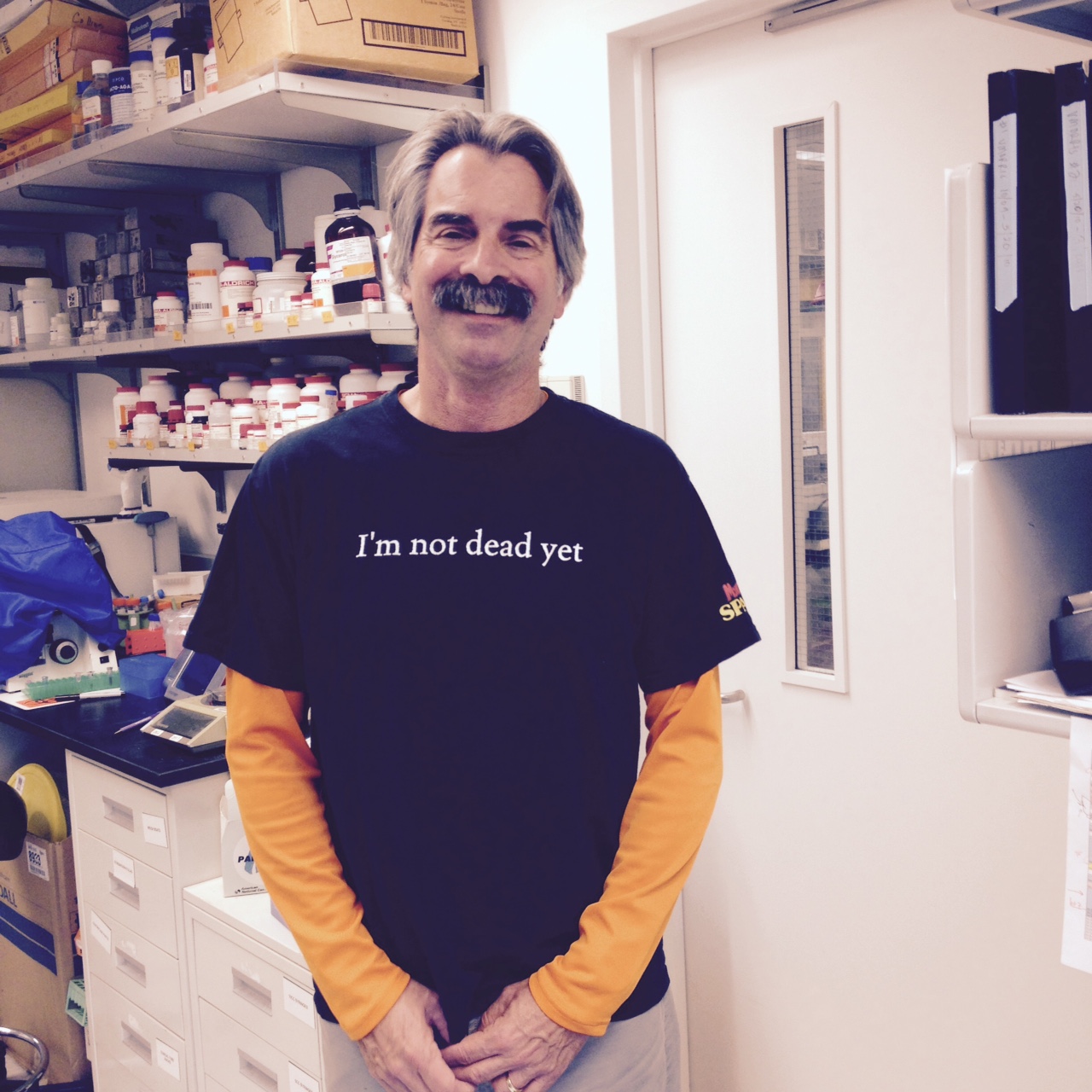 Professor Jerry Radich (Seattle, USA)
Professor Jerry Radich (Seattle, USA)
Director of the Radich Laboratory and the Molecular Oncology Laboratory at the Fred Hutchinson Cancer Center in Seattle (USA)
I am honored beyond measure to receive the Rowley Prize in 2023. Dr. Janet Rowley was a remarkable physician, scientist, and (most of all), human. For me to be mentioned in the same sentence as Janet is both humbling and mindboggling, especially since I readily confess to drafting behind the wake of brilliance of others before me (many who have won this award in previous years).
I have been remarkably lucky. I got interested in CML because my first boss, Nobel Laureate, E. Donnall Thomas, had a special interest in it, and encouraged my participation in clinical transplantation and lab work focused on CML. I worked in the lab of Steve Collins, who was one of the first to study the molecular biology of CML progression, added by the then novel technique of PCR (done at first in water baths. An aside: we had the first automated PCR machine in the city of Seattle. I broke it in its inaugural run…). My good fortune continued when I was brought into the IRIS trial by my friend and colleague Brian Druker. From then on, I was off on an academic joy ride, meeting the most remarkable band of colleagues and friends that any worker, in any field, could ever ask for.
With our remarkable success in CML, many in the cancer field - especially funding agencies - wonder if CML is essential “done.” How much better can our therapies be? What new translatable knowledge can CML provide that will continue to guide the field (CML is, after all, the first and foremost example of the “precision medicine” movement)?
I would argue, a lot.
I think there are three essential questions we are still dealing with in CML, and all of them are important models to other cancers:
- Who responds to therapy?
- Who loses response (relapse/progression)?
- Who can have their treatment discontinued?
 Who responds to therapy? It is remarkable that in CML we can fairly predict outcomes based on a relatively short-term series of response landmarks. We have leveraged this into using BCR-ABL as a rapid surrogate for drug approval trials - a remarkable accomplishment that is the envy, and goal, of virtually all other malignancies. Indeed, in the U.S., there is large, funded effort in AML to perfect and standardize measurable residual disease to both guide therapy, and be used as an early endpoint for drug development - all based and guided by our work in CML. Moreover, work in CML has shown the huge importance of the immune system in influencing and maintaining disease response, and these findings are spurring work in other hematological and solid malignancies.
Who responds to therapy? It is remarkable that in CML we can fairly predict outcomes based on a relatively short-term series of response landmarks. We have leveraged this into using BCR-ABL as a rapid surrogate for drug approval trials - a remarkable accomplishment that is the envy, and goal, of virtually all other malignancies. Indeed, in the U.S., there is large, funded effort in AML to perfect and standardize measurable residual disease to both guide therapy, and be used as an early endpoint for drug development - all based and guided by our work in CML. Moreover, work in CML has shown the huge importance of the immune system in influencing and maintaining disease response, and these findings are spurring work in other hematological and solid malignancies.
Who loses response? CML is the classic model of disease progression, as without intervention with TKI or transplant, all patients will eventually march from chronic phase to accelerated and blast phase. The biologic “clock” is still being investigated, but several lines of work have shown the similarities of outright progression and resistance. This work will likely inevitably map to other liquid diseases where progression occurs (MPN, MDS) as well as potentially solid tumors (prostate and colon cancer being good candidates).
Who can have their disease discontinued? The amazing finding that a good proportion of CML patients can eventually discontinue therapy has spawned an industry of creative clinical trials and biological methodology to better predict and succeed treatment free remissions. The work has shown the biological importance in immune mechanisms in TFR, and the power of innovative technical measures such as duplex sequencing, digital PCR, and single cell ‘omics to predict outcomes. As treatments advance in other hematological malignancies, a few diseases are vying for the honor of “the next CML”, where considerations of treatment discontinuations pioneered in CML are promoted as the future models of therapy (looking at you, CLL).
Lastly, I had the honor of winning the iCMLf Prize in 2017 for work developing CML diagnostics for low- and middle-income countries. With the advent of new oral agents for other malignancies, those experimental strategies found to work for CML should be adaptable for new targets, allowing all patients in low resource areas to enjoy the same benefits of the cancer treatment revolution as those who live in richer countries.
Many, many thanks for all your past, present, and continued support. Anything I accomplished was done with you, and so I thankfully share this honor with you all.
Contact:
Jerald Radich, MD
Translational Science & Therapeutics Division
Kurt Enslein Endowed Chair
Fred Hutchinson Cancer Center
jradich@fredhutch.org










